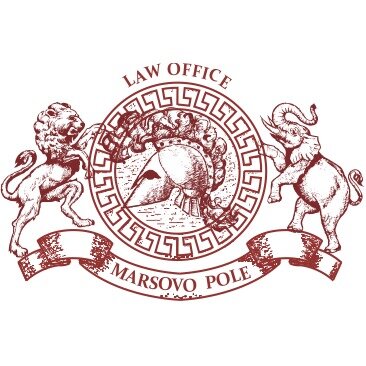
Best Estate Planning Lawyers in St Petersburg
Share your needs with us, get contacted by law firms.
Free. Takes 2 min.
List of the best lawyers in St Petersburg, Russia


Khrenov and Partners

Marsovo Pole
About Estate Planning Law in St Petersburg, Russia
Estate planning in St. Petersburg, Russia, is governed by Russian laws which are designed to regulate the distribution of a person's assets and responsibilities after their passing. The estate planning process can include preparation for the transfer of wealth to heirs, arrangements for guardianship of minor children, and directives regarding an individual's personal care and financial affairs should they become incapacitated. Instruments commonly used in Russian estate planning include wills (завещания), inheritance contracts (договоры о наследовании), and trusts (доверительное управление имуществом), although trusts are less common in Russia than in some other jurisdictions.
Why You May Need a Lawyer
Seeking legal advice is crucial in estate planning for a variety of reasons. This may include the need to create a will that complies with local laws, to minimize the tax burden on your heirs, to ensure the proper execution of your estate's distribution, or to prevent future disputes amongst family members. It can also be necessary for more complicated situations, such as if you have property in multiple countries, have a mixed family with children from different marriages, or if you hope to leave a part of your estate to a charitable organization.
Local Laws Overview
The key aspects of local estate planning laws in St. Petersburg, Russia, revolve around the Russian Civil Code. The law provides for a forced heirship rule, meaning that certain relatives (children, spouse, parents) cannot be completely disinherited and are entitled to a fixed share of the estate. Additionally, estate taxation in Russia has its own set of regulations that may differ from international practices. Therefore, understanding the nuances of local law is crucial to effectively manage and distribute one's estate. Property located in St Petersburg may be subject to specific local regulations, which underscores the importance of consulting with a locally knowledgeable legal advisor.
Frequently Asked Questions
What is the legal age to write a will in Russia?
The legal age to write a will in Russia is 18. However, under exceptional circumstances, such as debilitating illness or hazardous employment, individuals as young as 16 can create a will with notary approval.
Can I disinherit a family member in St. Petersburg?
While you can limit the share of your estate that goes to certain family members, Russia’s laws of succession do not allow for the complete disinheritance of spouses, children, or parents, who are considered compulsory heirs.
Do I need to notarize my will?
In Russia, notarization of the will is not mandatory but is highly recommended as it provides a higher level of legal certainty and helps avoid disputes about the authenticity of the will.
How is real estate property handled in estate planning?
Real estate property is typically passed to heirs either through a will or by the operation of law under the inheritance provisions of the Russian Civil Code.
What happens if someone dies without a will?
If someone dies intestate (without a will), Russian law prescribes a compulsory order of succession, where the closest relatives are entitled to inherit the estate.
Can a will be contested?
Yes, a will can be contested on various grounds, including questions about the testator's legal capacity, the presence of undue influence, or concerns about the will’s authenticity.
What are the estate taxes in Russia?
As of the knowledge cutoff date, Russia does not impose estate or inheritance taxes, but this could change, and it is important to consult with a lawyer to receive the most current information.
Is an executor required?
The concept of an executor is not exactly the same in Russia as in some other jurisdictions. However, an heir manager can be appointed to oversee the distribution of the estate.
How are foreign assets treated in estate planning?
For Russian residents, foreign assets are typically included in the global estate and are subject to the same succession laws unless a bilateral agreement or foreign law dictates otherwise.
Can inheritance issues be resolved out of court?
Yes, heirs can resolve inheritance issues through a notary or by mutual agreement to avoid legal disputes.
Additional Resources
For those seeking assistance in estate planning in St. Petersburg, the Russian Notary Chamber (Нотариальная палата) can be a valuable resource for notarization services and legal advice on drafting wills. Additionally, the Russian Ministry of Justice (Министерство юстиции Российской Федерации) provides regulatory information and can offer guidance on inheritance laws.
Next Steps
If you require legal assistance in estate planning, it is advisable to contact a reputable attorney who specializes in this field. Gathering all relevant documentation, including property records, financial statements, and identification documents, and drawing up a list of your wishes and potential heirs will better prepare you for your meeting with an estate planning lawyer.
The information provided on this page is intended for informational purposes only and should not be construed as legal advice. While we strive to present accurate and up-to-date information, we cannot guarantee the accuracy, completeness, or currentness of the content. Laws and regulations can change frequently, and interpretations of the law can vary. Therefore, you should consult with qualified legal professionals for specific advice tailored to your situation. We disclaim all liability for actions you take or fail to take based on any content on this page. If you find any information to be incorrect or outdated, please contact us, and we will make efforts to rectify it.


